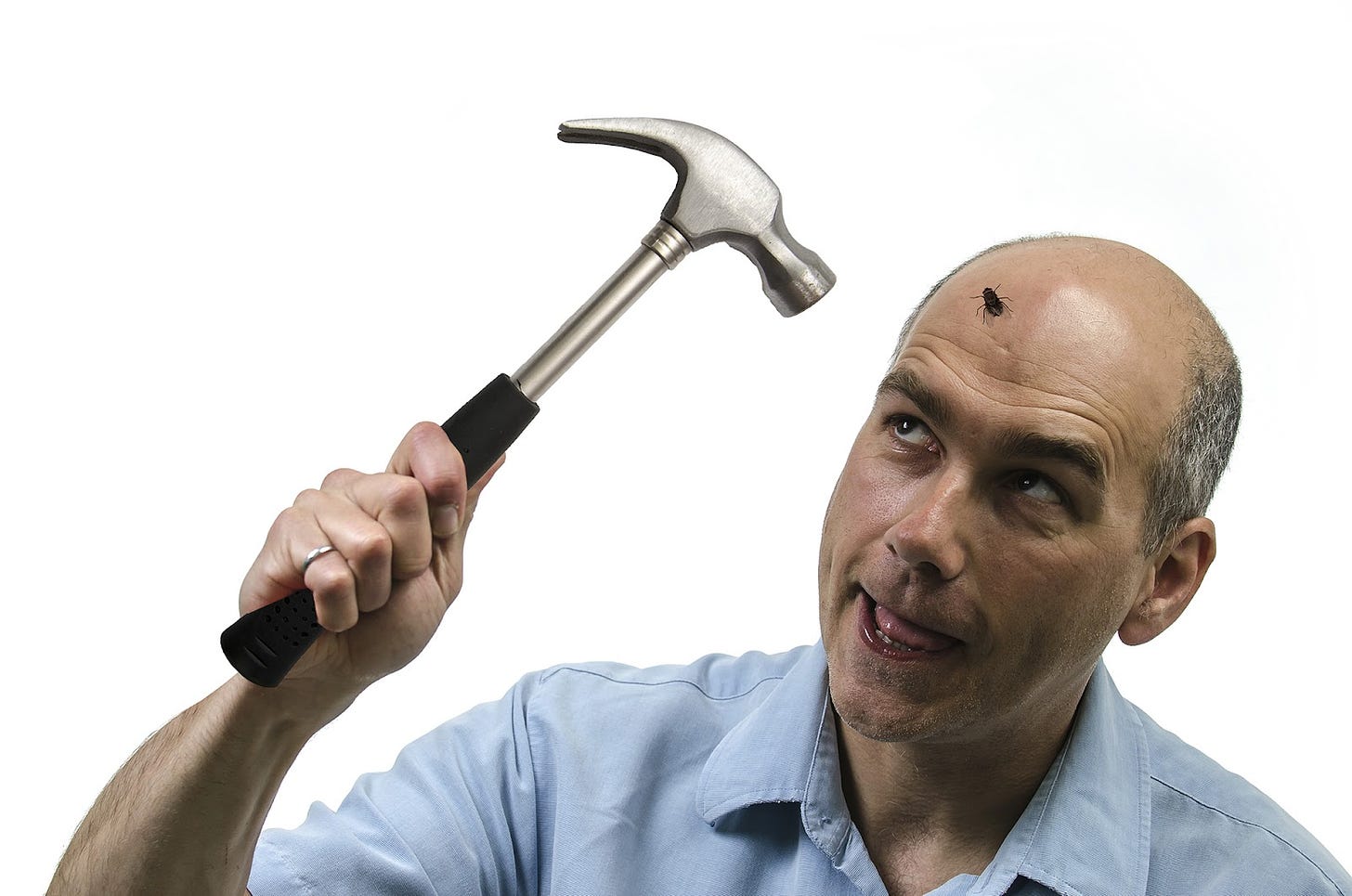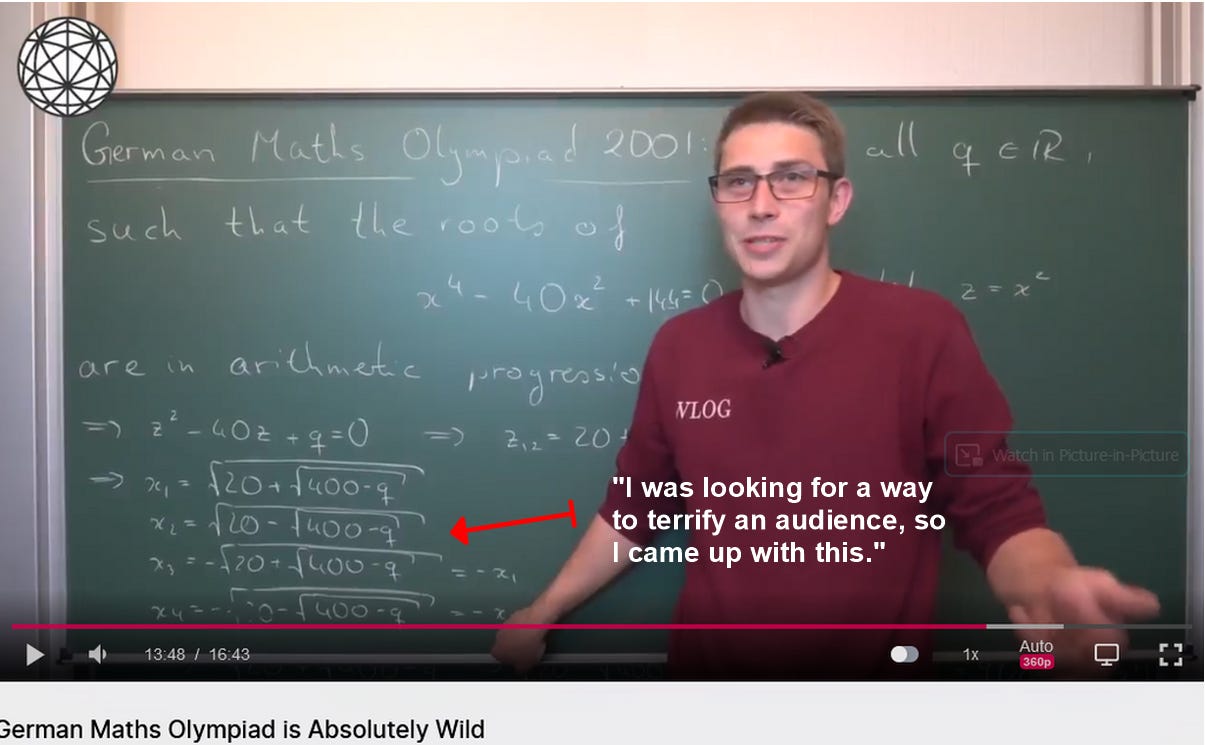"If I had an hour to solve a problem I'd spend 55 minutes thinking about the problem and 5 minutes thinking about solutions." -Albert Einstein
Some quotes are brilliant and bad at the same time. Take the point made here by Einstein as creative exaggeration. But the point is real: meditate on a hard problem substantially before diving in with the hammer to lay waste to the fly.
This is not just an article about how to better approach problem solving. Ultimately, it is the demonstration of potential pitfalls of expertise—the leap toward a common approach rather than the kind of full assessment of the problem needed to fit the right approach. This is not dissimilar to reaching for RCTs as the essential form of evidence for all medical science when no honest (and truly intelligent) statistician would argue that a high quality, matching cohort does not exist in Imperial County that provides a statistically tighter comparison to the Tyson/Fareed data than would exist in an RCT of substantial size.
The Disaster of Using the Wrong Information First
I was setting up accounts on video platforms today when I came across a series of instructional math videos. Once every few weeks I watch a few such videos to better hone my own craft. Sometimes this gets frustrating, however.
This is a good opportunity to understand what can go wrong with educated people solving problems. The instructor here is plenty well-schooled in his maths, but he still manages to take a problem with an easy solution and turn it into an algebra bash that may lead a lot of potential solvers to conclude that they just can't keep up. That's when people tune out and default to proxy trust in The Experts.





